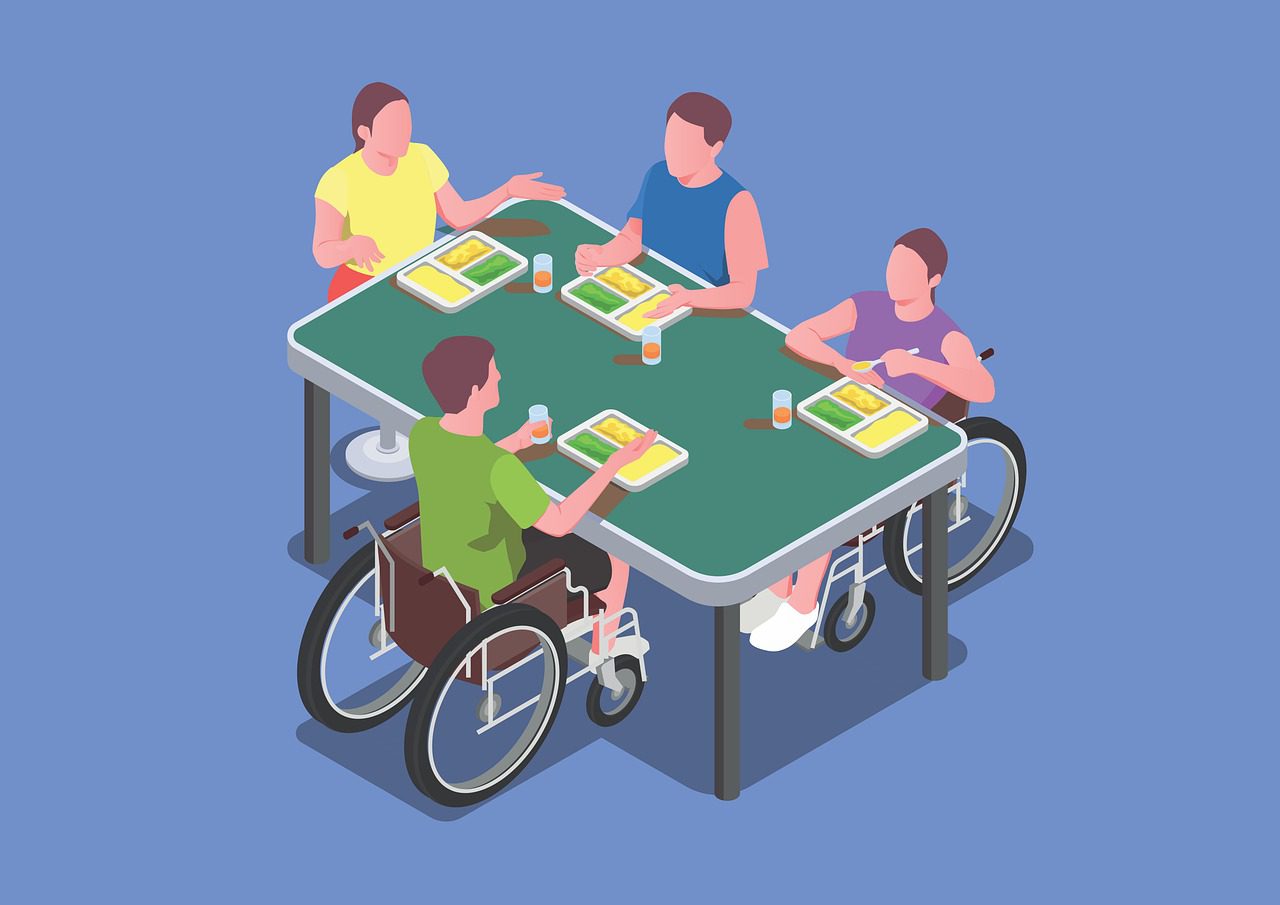
Human Trafficking Task Force: Victims with Disabilities
Victims of human trafficking may develop disabilities from abuse at the hands of their traffickers, and individuals with disabilities may be targeted by traffickers because they are vulnerable. Many human trafficking task forces miss identifying this risk factor or fail to make provisions for people with disabilities. People with physical disabilities, cognitive or intellectual disabilities, sensory disabilities, and mental illnesses all need special attention and protection.
There are several factors that make people with disabilities vulnerable to trafficking.
- People with disabilities often rely on others to meet their basic needs. These caregivers have opportunities to traffic them as a result.
- People with disabilities may become submissive to their caregivers and comply with their caregivers’ wishes because they are so dependent upon them. This learned response makes the unequal power dynamic in relationship with a trafficker, even if the trafficker is abusive, seem normal.
- People with disabilities may lead isolated lives and crave friendship and human connection. Because of this need, they may be persuaded to perform sexual acts if they are promised friendship or money as a reward. Isolation can also make it difficult or impossible for people with disabilities to make contact with people who could help them.
- Some people with disabilities cannot speak clearly or require communication devices or interpreters to make their needs known, so they, also, cannot ask for help.
- Because of the level of touching that accompanies intimate care and medical procedures, people with disabilities can become desensitized to touch and/or may be unsure about whether they have the right to object to and report unwanted touch, sexual abuse, and sexual acts. They lack information about and understanding of what constitutes a crime and what their rights are as victims of crimes. This is also true of trafficked workers.
- People with disabilities may not be believed if they report abuse and violence. If they are believed and their cases are prosecuted, their abusers may be given shorter sentences than abusers of able-bodied people. Task forces should promote awareness of these trends when training service providers, police, prosecutors, and judges.
There are societal and structural barriers that keep people with disabilities from contacting the justice system, so task forces should have access to sign language interpreters, plain language specialists, and assistive communication devices. They should also remove physical barriers to and within their offices.
Below are some key considerations when working with victims with physical, cognitive, or emotional disabilities:
Training Resource:
OVC TTAC offers training on Supporting Crime Victims With Disabilities. This 3-day training is designed for victim service providers, advocates for people with disabilities, self-advocates, and allied professionals. Using case studies and small group discussions, you will examine the prevalence of crime against people with disabilities, perceptions of the criminal justice system, tenets of the disabilities movement, and the impact of disabilities on daily life. Through collaborative activities, you will identify ways that various agencies, organizations, and systems can work together to better serve crime victims with disabilities.
- Establish relationships with expert psychiatrists and counselors. As with all victim populations, culturally and developmentally appropriate trauma treatment is an essential aspect of any quality comprehensive services response. Establishing relationships with psychiatrists and counselors who understand the unique needs of people with disabilities (e.g., mechanics of communication, physical interaction, using service animals) is an excellent strategy to meet these needs. Victims presenting with severe trauma or mental illness may refuse assistance and may be unable to comply with program requirements or to follow service plans and instructions. Service providers may need specialized support to provide the best possible services to these victims.
- Use a forensic interviewer to conduct law enforcement interviews. Forensic interviewers conduct non-leading, victim-sensitive, neutral, and developmentally appropriate investigative interviews that help law enforcement determine whether a crime occurred and what happened. They can be particularly critical when interviewing victims with cognitive or development disabilities, which might require extended interviews. See Section 5.2 on federal law enforcement resources for more information on forensic interviewers.
- Accommodate for unique needs. When working with victims with disabilities, speak directly to the victim utilizing simple language that is not filled with organizational jargon. Give time to ask questions and repeat them when necessary. Also, be prepared to give extra time for the victim to respond to questions, particularly victims with cognitive disabilities. Try to create a unified process for delivery of services. Also, ensure that you have reasonable accommodation for access, furnish auxiliary aids when necessary, and remove structural and architectural communication barriers in existing facilities where readily achievable, or provide alternate measures if barriers cannot be removed. Organizations may need to modify organizational rules or requirements (such as arriving on time for appointments, completing specific requirements, or attending regular appointments) for clients who are unable to comply with those requirements due to their disabilities.
- People with disabilities should be referred to as people with disabilities, not disabled people. Refer to a person’s disability only if necessary and if the disability directly affects the problem you are discussing. For instance, a lawyer who uses a wheelchair will not have problems arguing a case in court, but may have difficulty entering the courthouse or finding a bathroom that accommodates the wheelchair.
